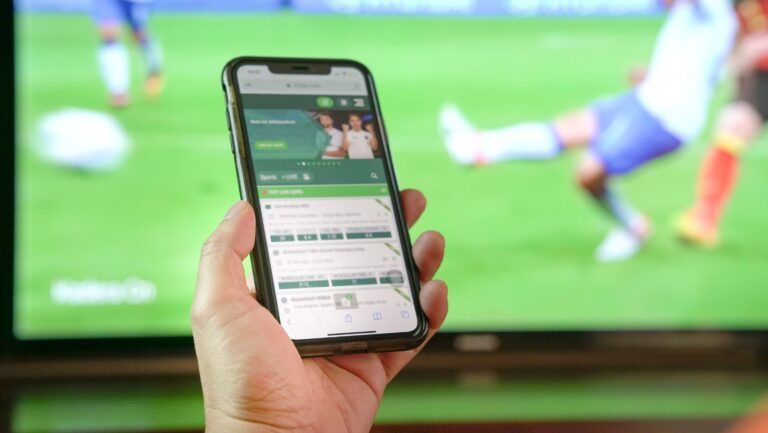The start of a new year brings the perfect opportunity for self-improvement, and one of the most impactful areas to focus on is financial health. Old habits are hard to break, but recognizing and addressing harmful financial behaviors can lead to a more stable, prosperous future.
Let’s explore some common bad money habits and how to replace them with healthier practices to ensure this year is your best financial year yet.
Mindless Spending: Transition to Conscious Spending
Mindless spending is a habit that can quickly go unnoticed. This includes frequent impulse purchases, unplanned trips to the store, or consistently buying small items that add up over time. The key to breaking this habit is awareness.
Start by tracking all your monthly expenses, either through an app or manually in a notebook. Once you see where your money is going, create a conscious spending plan that aligns with your financial goals.
Set limits for discretionary spending, and when tempted to make an unplanned purchase, wait 24 hours to decide if it’s a necessity or a momentary want. Gradually, this will transform how you prioritize and value your spending choices.
Living Paycheck to Paycheck: Start Building an Emergency Fund
Many people live paycheck to paycheck without a financial safety net, which can lead to stress and debt in the event of an unexpected expense. About one-third of U.S. workers report living paycheck to paycheck, with little left for savings after covering monthly expenses.
To break this habit, start building an emergency fund, even if you begin with small amounts. Aim to set aside a portion of each paycheck, no matter how small, in a separate savings account reserved for emergencies only.
Over time, save at least three to six months’ worth of living expenses. An emergency fund provides peace of mind and allows you to handle unexpected costs without disrupting your budget.
Using Credit Cards for Non-Essentials: Embrace Cash or Debit for Everyday Purchases
Credit cards are often misused, especially for purchases that don’t necessarily fit into a budget or plan. Swiping a card for coffee, dining out, or small shopping sprees can quickly lead to mounting debt.
To change this habit, try switching to cash or using a debit card for daily, non-essential purchases. Designate a set amount for weekly discretionary spending, and once it’s gone, refrain from using credit until the following week. This approach informs you of your spending limits and helps prevent accumulating credit card debt.
Failing to Budget: Create a Budget That Works for You
Without a budget, it’s easy to lose track of where your money goes and how much you spend on specific categories each month. Budgeting doesn’t have to be restrictive or complicated; it just needs to provide a clear plan for your finances.
Start by calculating your monthly income and listing all essential expenses, including rent, utilities, food, and debt payments. Then, allocate a specific amount for savings and discretionary spending.
Use budgeting methods like the 50/30/20 rule budgeting rule, which designates 50% of income to needs, 30% to wants, and 20% to savings or debt repayment, to create a balanced budget. Revisit your budget monthly to adjust as needed, keeping your goals in mind.
Ignoring Debt: Develop a Debt Repayment Strategy
Ignoring debt doesn’t make it disappear, and in fact, it often makes matters worse. To start the new year, take a proactive approach to tackling debt by creating a clear repayment plan. List all outstanding debts, including their interest rates and minimum payments.
Consider using the snowball method, which focuses on paying off smaller debts first for quick wins, or the avalanche method, which targets high-interest debts to reduce the total interest paid.
Allocate extra funds whenever possible to accelerate repayment, and focus on one debt at a time to maintain momentum. Watching your debt balance decrease will reinforce your commitment to financial freedom.
Avoiding Financial Education: Make Time to Learn About Personal Finance
One of the primary reasons for poor financial habits is a lack of financial education. It’s common to feel that personal finance is overly complex or intimidating, but understanding the basics can dramatically improve your financial decisions.

Fortunately, many financial service providers now offer educational resources on their websites, making learning at your own pace easier. These resources often include articles, guides, and hacks to help you save and simplify essential topics like budgeting, investing, and debt management.
By dedicating just a few hours each month to exploring these tools, you can build a stronger financial foundation and develop confidence in your money management skills. Small steps to expand your financial knowledge will empower you to make informed decisions and create long-lasting financial stability.
Not Saving for Retirement: Start Planning for the Future Now
A typical financial mistake is neglecting to save for retirement, especially among younger individuals who may feel that retirement is too far to prioritize. However, the earlier you start, the more time your investments have to grow. If your employer offers a retirement plan, like a 401(k), contribute at least enough to receive any matching funds, as this is essentially free money.
If an employer-sponsored plan isn’t available, consider opening an Individual Retirement Account (IRA) or a similar savings plan. Make a habit of increasing your contributions whenever you get a raise or a bonus to help grow your nest egg for the future.





